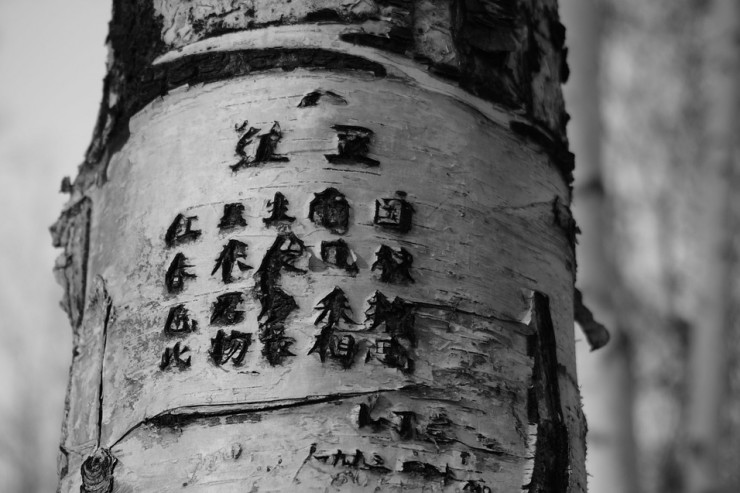3 SEPTEMBER 2020 – DEADLINE FOR RUCKSACK – GLOBAL POETRY PATCHWORK PROJECT
Rucksack, at Global Poetry Patchwork is an art installation project that will open on September 26, 2020 at the Piccolo Museo della Poesia, in Piacenza (Italy). It consists of two macro-works: an installation featuring a large bag, the Rucksack, made of dried tea bags and an exhibition of short poems, which are to be incorporated into the museum archive at the end of the exhibition. An audio loop installation will provide the public with the opportunity to listen to the voices of poets reciting in their mother tongues. The work brings together a great number of people, places, visions, languages, emphasizing the value of closeness, so significant in this historical moment marked by distance and confinement, by the acute precariousness of the human network. The Poetryismypassion initiative, curated by Antje Stehn, will take place in collaboration with the Small Museum of Poetry in Piacenza, the Realism Terminal movement, Mamta Sagar, Bengaluru (India), the artistic collective feine Menschen (Germany) and the online magazine La macchina sognante .
WHY TEA? WHY POETRY?
Tea bags have a long history dating back to the eighteenth century, when the Chinese started sewing small square bags to better preserve the aroma of the different teas. The “Tea and Horse Route” was born during the Tang Dynasty (618-907), long before the Silk Road, in order to consolidate trade relations between Tibet and China. And since then, tea bags continue to be one of the smallest containers that we use and find in every home. Carrier bags were among the first tools used by women and men to carry objects and memories. Our ancestors were hunter-gatherers, but actually gatherers were predominant, given that 80% of their food came from collecting seeds, roots, fruits in nets, bags and in any type of light container. Bags were important tools for transporting goods, yesterday just like today, as we can see bags being used as shopping containers in the supermarkets. This is why we decided to place the tea bag at the center of attention, as the heart of a cultural meeting, and the Rucksack as a trace of our bond with nature and migration.
However, we cannot but wonder why are depiction of great hunting scenes predominant on the walls of caves rather than people busy harvesting and carrying bags to collect food? This question also occurred to Ursula K. Le Guin, a science fiction writer who wrote the so-called Carrier Bag Theory of Fiction, based on the Carrier Bag Theory of Human Evolution by anthropologist Elizabeth Fisher. Le Guin noted that it is difficult to tell a story about how seeds are extracted from the peel, day after day in the same way. Hunting, on the other hand, is a real adventure, full of dangers and surprises, its final apotheosis being the killing, when a huge mammoth, for example, falls to the ground. This is material for an action story and it is what our ancestors probably told each other sitting around the fire. But also tragically, it marks the beginning of the normalization of violence and of a narrative focused on it. The act of gathering, on the other hand, had little narrative potential; at best it was suitable for poetry dealing with the world at the margins, that few care about. However, on closer inspection, poetry tells us about a different look at the world, of an alternative to the monopoly generated by a single story. This is the reason why the project includes the Rucksack made with recycled tea bags, a collection of short poems by the participants and an audio loop.
HOW TO PARTICIPATE IN THE PROJECT
Send by September 3, 2020:
- tea bags or herbal teabags, well dried.
- a short poem (max. ten lines) on the subject of the installation, written in your native language, preferably handwritten on an A4 sheet, possibly accompanied by a translation in Italian or English. On the back, include a very short biography.
- a short video in which you read the poem for the audio loop, to be sent via whatsapp to +39 3284016107.
For shipping, the address is as follows: Antje Stehn, Via Juvara 12, 20129 Milan. Poets who for various reasons will be unable to send by post can scan their poetry and send it to the whatsapp number shown in point 3.
Poetryismypassion
Il Piccolo Museo della Poesia di Piacenza
Il Realismo Terminale
Mamta Sagar, Bengaluru, India
feine Menschen, Germania
La macchina sognante
The Dreaming Machine





















































